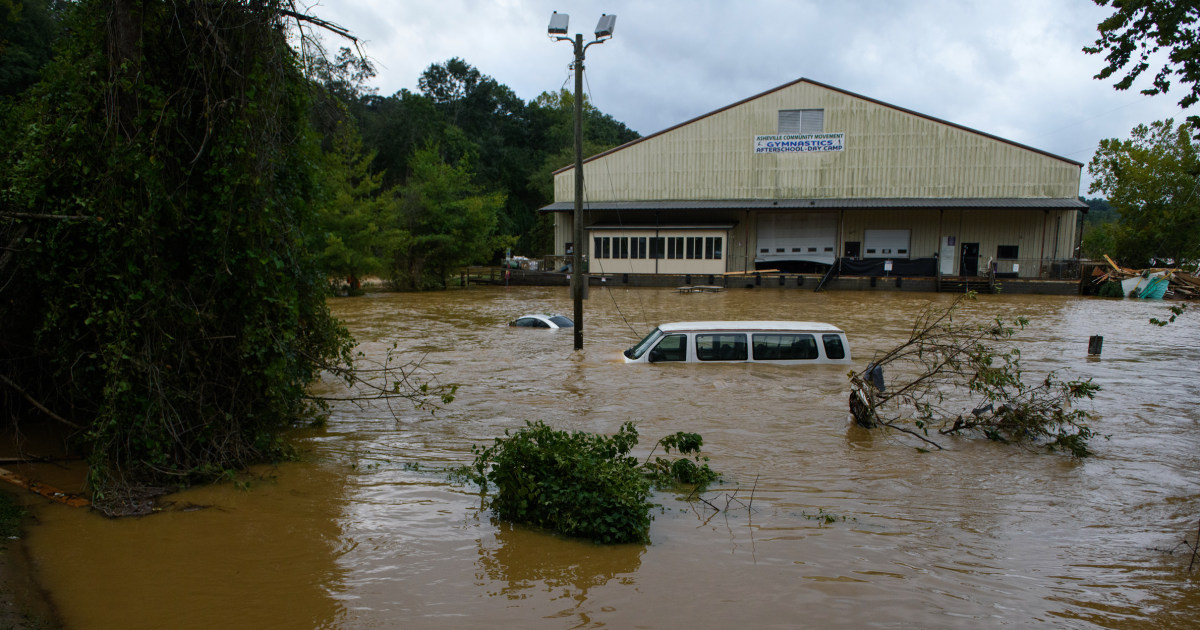
The Summary
- Flooding in North Carolina following Hurricane Helene has led to swarms of yellow jackets.
- Heavy rain and standing water likely destroyed the insects’ nests underground and in trees.
- State health officials said they have bought Benadryl and EpiPens to help people who get stung, especially those with allergies.
Severe flooding in western North Carolina as a result of Hurricane Helene has stirred up colonies of yellow jackets, raising the risk of stings.
The rain and floodwater most likely destroyed the insects’ underground nests, in addition to toppling trees or stumps that held nests, said Chris Hayes, an extension associate in urban entomology at North Carolina State University.
“Now they’re out of a home, just like many people are,” Hayes said.
North Carolina health officials said they have bought large amounts of Benadryl and EpiPens to address the problem.
“We are actively working to ensure Benadryl and epinephrine are readily available in western NC for those who may be allergic or have been stung,” Summer Tonizzo, a press assistant at the state Department of Health and Human Services, said in an emailed statement.
The medications will be distributed to residents through health care providers, hospitals and emergency medical services, Tonizzo added.
She said it’s normal for yellow jackets and other stinging insects to be temporarily disrupted after a hurricane.
Hayes said his parents have seen yellow jackets on their property in Wilkes County, in the state’s western mountain region.
“My dad was clearing some trees out of their yard, and [my mom] was texting me, saying, ‘Hey, there’s yellow jackets all over these trees,’” he said.
Tarren Pruitt, 42, a registered nurse in West Jefferson, North Carolina, said that since the hurricane, she, too, has noticed yellow jackets wherever she goes.
“I take my kids out and we can’t even walk outside and not see one or two,” Pruitt said.
She added that she has heard reports of linemen getting stung trying to restore power in her area and that she is working with churches to deliver supplies, including chewable Benadryl, to those workers.
Most people aren’t allergic to wasp or bee stings but may still develop pain, itching or swelling at the site. Benadryl, either in topical or oral form, can help reduce those symptoms. Epinephrine injections, or EpiPens, are reserved for people with severe allergic reactions — such as trouble breathing or swallowing — which can sometimes be life-threatening.
Hayes said people who are allergic to bees are usually allergic to yellow jackets, as well, though the scale of the reaction might differ.
Tonizzo said the North Carolina Board of Pharmacy “has flexibility so that people can get emergency refills on their prescribed allergy medicines.”
“We are working to issue a standing order for Epi-pens for people to get medicines if they do not have a prescription from a provider,” she said in the statement.
Yellow jackets are generally more aggressive than bees, and they are able to sting people multiple times. When the insects sense danger, they release pheromones that signal other yellow jackets to attack.
“They very quickly move to defend their hive and their colony from predators or any threat that they sense,” Hayes said.
That’s especially true in the fall, he added, since most yellow jackets — except for the young queens — die off when the first frost arrives.
“They tend to get more aggressive this time of year because food is becoming more scarce, populations are typically crashing, and they’re getting ready to overwinter,” Hayes said.
The storm’s effects may have aggravated some colonies even further, he said, since efforts to clear out felled trees could restrict yellow jackets’ access to food sources like nectar. In addition, if the severe weather killed a yellow jacket queen, the rest of her colony might be flying around aimlessly.
“Populations are just kind of spilling out, so you don’t have one yellow jacket, you have 300 of them on this tree,” Hayes said. “They can very quickly mount a response that can be very dangerous, even for people who are not severely allergic.”
If you encounter a yellow jacket nest that has been disturbed, the National Park Service recommends slowly walking away with both hands over your face to protect sensitive areas.
Hayes suggested that residents in western North Carolina wait to clear trees until the insects have left the area or wait until night, when they’re less active.
People who are severely allergic to insect venom should carry EpiPens with them at all times and seek immediate medical attention if they get stung.






